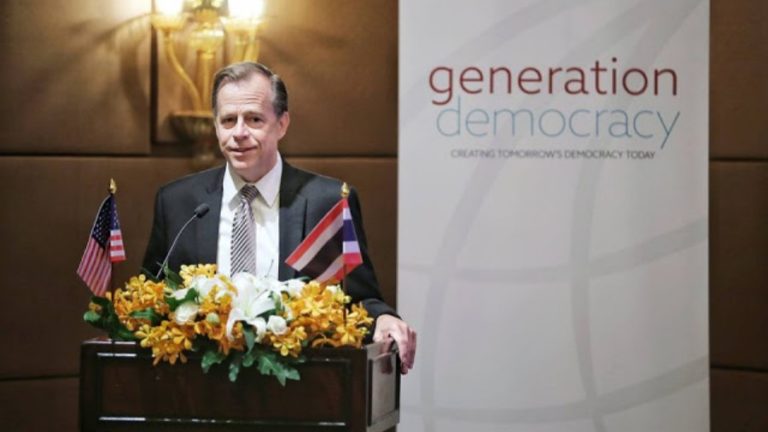A Mistake to Expect Real Change From the Incoming Biden Administration
One of the great illusions being fostered by the victorious Democratic Party in the United States is that with the removal from office of Donald Trump things will return to normal. This is an illusion fostered by the incoming President Joe Biden. It is an illusion for a number of reasons.
The first illusion was that the United States in any substantial way was different under the Trump administration. There were of course elements of difference by Trump from his predecessors, but those were mainly in his rhetoric. For example, he took steps to reduce the number of United States military forces in Afghanistan. That was welcomed by many, but ignored the fact that United States mercenaries increased at the same time as regular troops were being withdrawn.
Under the Biden administration it is highly doubtful that the withdrawal of regular United States troops will continue, at least voluntarily. The Taliban now effectively controls most of the countryside and they have made it clear that only a complete withdrawal of all foreign forces is acceptable. The demand highlights the fact that in all the talk about the withdrawal of American troops, the future role of the other foreign nationals in Afghanistan is ignored.
This includes Australian troops, currently the subject of investigation because of war crimes committed by their forces. That certainly happened, and equally certainly it was not confined to a few rogue regular soldiers operating with the ignorance of their commanders.
The media have gone silent on this point, just as they are studiously ignoring the implications of a putative United States withdrawal. They know that the policy of withdrawal will be shelved by the incoming Biden administration. Afghanistan is crucial geographically, and that plus the highly lucrative heroin trade, are far too valuable to be abandoned. The United States after all, has invested a lot of time and money into its Afghanistan role to voluntarily give it all away.
The same is true in the Middle East. It is too easily overlooked that it was the Obama administration, with Biden as vice president, that sustained the war in Iraq and commenced the war in Syria. The United States has ignored Iraqi demands that they leave, and there has been no commitment from the Biden campaign to scale down the involvement in either Iraq or Syria. If anything, we are likely to see an increase in United States military involvement in Syria, rather than a reduction. That will inevitably bring the Americans into conflict with both Russia and Iran.
It is true that the incoming Biden administration has given signals that it wishes to re-join the JCPOA that the Trump administration unilaterally withdrew from, while greatly increasing its policy of sanctioning Iran. That signal is not however unqualified. The Biden campaign has been talking about “renegotiating” clauses of the original agreement. The Iranians, unsurprisingly, have totally rejected any renegotiations.
Neither has the Biden team made any commitment to reducing United States sanctions on Iran, which must surely be a minimum precondition to encouraging Iran to return to the negotiating table. The Iranians for their part have taken steps to eliminate the Americans from influencing their foreign relations. They have been looking Eastward to China, and also to Russia, for greater investment and trading opportunities.
Iran is increasingly an important component in China’s Belt and Road Initiative which in turn is part of a fundamental realignment of trade and other relationships, with more than 150 countries and international organisations. Australia, yet again contrary to its own best interests, has loyally followed the Americans in shunning the BRI. That also is highly unlikely to change under a Biden administration.
Biden has also been talking about resuming normal relationships with Europe. What he really means is resuming the United States’ role as the arbiter of European foreign policy. That was the way things were when Biden was vice president only four years ago. But the world has changed in those four years. For the first time since the end of World War II more than 75 years ago, Europe is showing signs of developing a foreign policy that reflect its interests first rather than those of the United States.
One obvious symptom of this is that the European Union has just signed a trade and investment deal with China, after seven years of negotiation. China is now Europe’s largest trading partner and the latest agreement will solidify and enhance that developing relationship. Trumps much vaunted withdrawal of troops from Europe was in fact no such thing. What took place was a rearrangement of some US troops, mainly from Germany to Poland.
Poland has the dubious distinction of having a strong anti-Russian orientation. United States troops are now in fact even closer to Russia’s borders than before. Again, there has been no signal from the Biden group that this will change. It is too easily overlooked that it was Biden who engineered the coup in Ukraine when he was vice president. Nothing he has said or done since suggests any change of policy there.
The United States media and the politicians are still promoting the lie that Russia “annexed” Crimea. It was also the former United States administration with Biden as vice president that promoted the lie that Russia shot down MH17 over Ukraine. Nothing has happened in the intervening years to alter that American perspective, and would be naïve to expect any change in the incoming Biden administration.
It should also be remembered that it was the Democratic lead House of Representatives and Democrats in the Senate who spent the four years of the Trump administration blaming Russia for their loss in the 2016 presidential election. Nothing has changed in that rhetoric and it would again be naïve to expect any significant changes in United States-Russian relations under the incoming Biden administration.
While the political demise of Trump’s appalling secretary of state Mike Pompeo, surely the worst occupier of that role in modern history, is to be applauded, it would be dangerous to confuse a change of tone with a change of policy.
The most encouraging feature is that the world has changed in the past four years, with encouraging signs that Europe is finally beginning to reassert itself and take tentative steps toward acting in its own best interests, rather than being an effective “yes man” for the American view of the world.
Will the United States truly grasp the significance of these changes and adapt their behaviour accordingly will be one of the major questions to be answered by the incoming Biden administration. One would be unwise to be too optimistic on that front. The forces of political change now in operation may make a recovery of the United States position impossible. If that turns out to be the case it is something we should all welcome.






